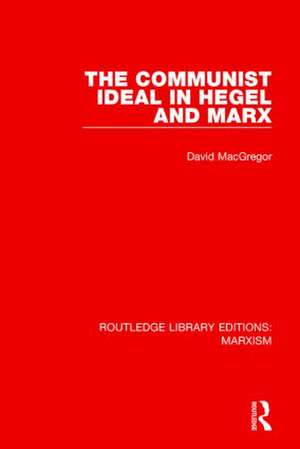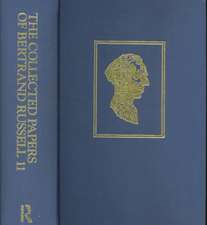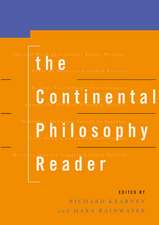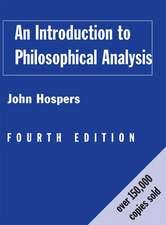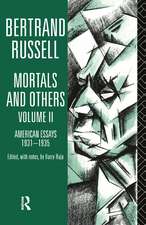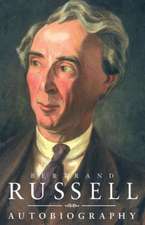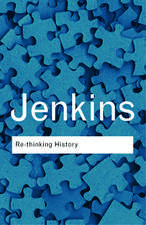The Communist Ideal in Hegel and Marx (RLE Marxism): Routledge Library Editions: Marxism
Autor David MacGregoren Limba Engleză Hardback – 8 apr 2015
Din seria Routledge Library Editions: Marxism
- 17%
 Preț: 259.98 lei
Preț: 259.98 lei - 17%
 Preț: 241.15 lei
Preț: 241.15 lei - 20%
 Preț: 259.98 lei
Preț: 259.98 lei - 15%
 Preț: 702.25 lei
Preț: 702.25 lei - 34%
 Preț: 680.31 lei
Preț: 680.31 lei - 18%
 Preț: 1002.63 lei
Preț: 1002.63 lei - 17%
 Preț: 241.15 lei
Preț: 241.15 lei - 15%
 Preț: 672.12 lei
Preț: 672.12 lei - 18%
 Preț: 1004.20 lei
Preț: 1004.20 lei - 43%
 Preț: 172.64 lei
Preț: 172.64 lei - 18%
 Preț: 1005.01 lei
Preț: 1005.01 lei - 18%
 Preț: 1001.07 lei
Preț: 1001.07 lei - 19%
 Preț: 256.32 lei
Preț: 256.32 lei - 17%
 Preț: 241.15 lei
Preț: 241.15 lei - 17%
 Preț: 178.76 lei
Preț: 178.76 lei - 16%
 Preț: 243.90 lei
Preț: 243.90 lei - 18%
 Preț: 1001.07 lei
Preț: 1001.07 lei - 17%
 Preț: 247.40 lei
Preț: 247.40 lei - 18%
 Preț: 1281.24 lei
Preț: 1281.24 lei - 18%
 Preț: 1287.09 lei
Preț: 1287.09 lei - 17%
 Preț: 241.15 lei
Preț: 241.15 lei - 34%
 Preț: 7528.09 lei
Preț: 7528.09 lei
Preț: 1061.06 lei
Preț vechi: 1293.97 lei
-18% Nou
Puncte Express: 1592
Preț estimativ în valută:
203.04€ • 217.11$ • 169.29£
203.04€ • 217.11$ • 169.29£
Carte tipărită la comandă
Livrare economică 18 aprilie-02 mai
Preluare comenzi: 021 569.72.76
Specificații
ISBN-13: 9781138891036
ISBN-10: 1138891037
Pagini: 322
Dimensiuni: 156 x 234 x 23 mm
Greutate: 0.64 kg
Ediția:1
Editura: Taylor & Francis
Colecția Routledge
Seria Routledge Library Editions: Marxism
Locul publicării:Oxford, United Kingdom
ISBN-10: 1138891037
Pagini: 322
Dimensiuni: 156 x 234 x 23 mm
Greutate: 0.64 kg
Ediția:1
Editura: Taylor & Francis
Colecția Routledge
Seria Routledge Library Editions: Marxism
Locul publicării:Oxford, United Kingdom
Public țintă
Postgraduate and UndergraduateCuprins
1. Hegel and Marx 1.1. Introduction 1.2. Work and the Social Individual 1.3. The Hegelian Idea 1.4. Communism and the State 2. Religion, Philosophy and the Development of Individual Consciousness 2.1. Plato, the Idea and the Social Individual 2.2. Hegel’s Atheism 2.3. The Idea of Christianity 3. From Theology to Absolute Realism 3.1. Theology, Enlightenment and Absolute Idealism 3.2. Ideality, Work and Absolute Idealism 3.3. Protestantism, Absolute Idealism and Revolutionizing Practice 4. Alienation and Ideology 4.1. Feuerbach and Alienation 4.2. Alienation and Natural Science 5. Kant and the Bourgeois World of Abstraction 5.1. Reality and Abstraction in the Generated World of the Categories 5.2. Contradiction and Freedom 6. Capitalism, Class and Profit 6.1. Capitalism and Abstract Freedom 6.2. Class and the Individual 6.3. Profit, Private Property and Freedom 7. The External Capitalist State 7.1. The Corporation and the External State 7.2. Class, Consumption and Freedom 7.3. Bildung and the Social Individual 7.4. On Law and Justice 7.5. Poverty, Imperialism and the External Capitalist State 8. Dialectic and the Rational State 8.1. The Dialectic Method 8.2. Dialectical Exposition and the Rational State
Descriere
One reader has called this study, first published in 1984, ‘easily the best book on the relation of Hegel to Marx’. With spirited argument, MacGregor demonstrates that Hegelian logic suited Marx’s purpose so well because it already contained the unique elements that later appeared in Marx’s social theory, including the notions of surplus value and the transition to communism. The most exciting thing about the book is the clear demonstration that the mature Marx gets ever closer to Hegel, and is increasingly indebted to him. In short, the author gives us a new Hegel and a new Marx. In a manner both original and penetrating, MacGregor shows that dialectical logic is pre-eminently social logic, a reconstruction in thought of social relationships and social structure. Central to the work is the examination of the Philosophy of Right, in which Hegel delineated a theory of modern capitalist society. MacGregor provides a compelling analysis of Hegel’s importance for Lenin and a strong caveat that contemporary Marxism ignores Hegel to its own peril. MacGregor establishes that Hegel’s absolute idealism is founded on a theory of the dialectics of labour similar to Marx’s historical materialism. Another significant discovery elucidates Hegel’s concept of poverty as the missing link which joins Marx’s formulation to classical liberal theory.
